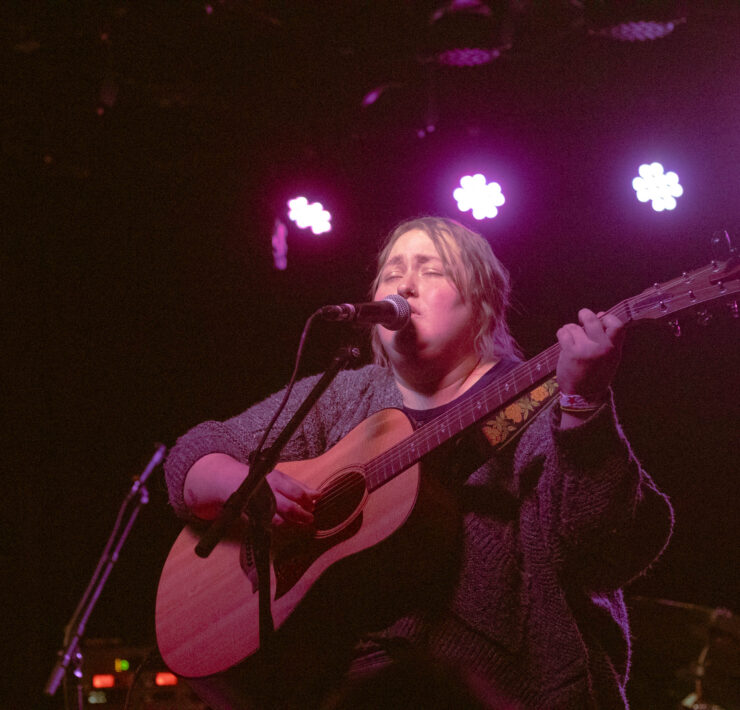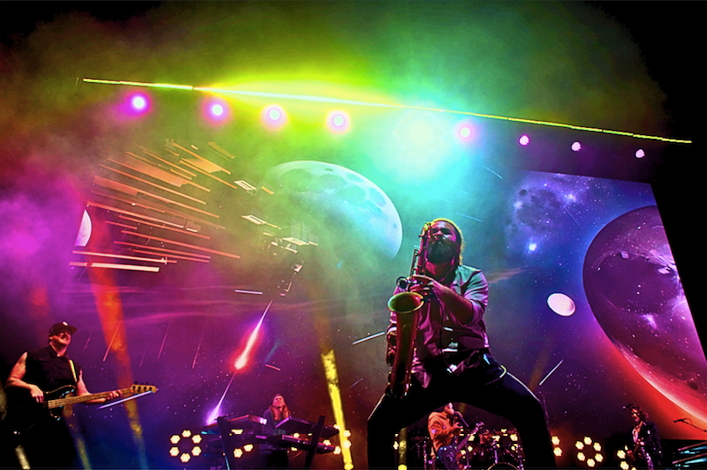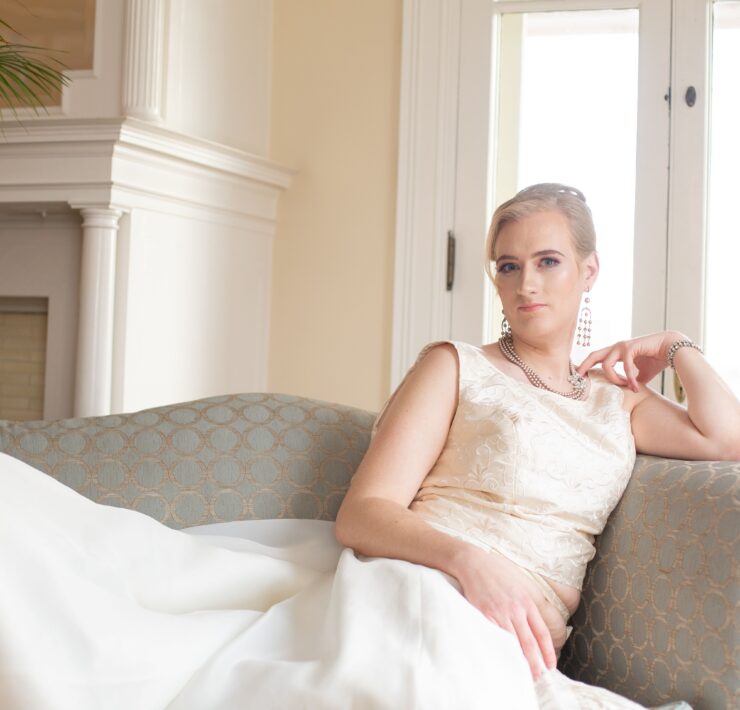Saint George Blurs the Gender Line and Raps about Disneyland

Addison Herron-Wheeler is OUT FRONT's co-publisher and editor-in-chief and friend…
Hip hop is a genre riddled with political innuendo. As both an art form pioneered by people of color, and a medium that allows for incredibly sexist lyrics due to the masculine culture surrounding it, hip hop has lead to some major debates and continues to be a controversial medium.
Saint George, aka Phil Matthews, a queer rapper who identifies as bisexual, uses the volatile nature of hip hop to create a unique, raw form of self-expression that pushes boundaries without relying on shock value.
“I used to do, like, laptop rap in high school, where I would just rap into the mic on my laptop over like, Drake or Lil’ Wayne instrumentals,” he told us. “I even put out a couple really bad mixtapes in high school but quit rapping after I dropped out. I didn’t really pick it up again until my friend made this beat and put it on his Soundcloud and everything clicked super hard for me. I wrote my ass off to that beat.”
That beat made its way on his first mixtape Da Intro 2 Hedonism on the track ‘5x 4 RWD.’
Saint George raps about personal issues, often focusing on his gender and sexuality and how those were shaped growing up in middle America. His latest mixtape, Disneyland, deals with a lot of the issues he faced growing up, realizing he was bisexual and trying to be out of the closet but inevitably getting forced back in.
“Going into it, I wanted to focus a lot on my adolescence,” Saint George said. “The title comes from my parents; they’d always take my sister and I on family trips to Disneyland. It was a big family ritual. I found out later that my parents were regularly dropping acid when they were on those trips and I was like, ‘F*ck, there’s a lot to unpack there.’ That’s where it started.”
There’s a crazy duality to Disneyland for Saint George, but he noted that the Disney franchise is complicated on its surface — as long as you know what you’re looking at. He referenced the complicated balancing act of blatant capitalism and pure, childlike magic, and brought up the cognitive dissonance of queer people idolizing Disney princesses while ignoring its history of racist characters and total non-representation.

For Saint George, Disneyland also represents a point in his life when he was unable to be fully himself or express his identity.
“When I started to reflect on my high school years for the album, I remembered having some really dark times there,” he admitted. “I started to develop a dependency on ecstasy and molly when I was 14 or 15; I had recently changed schools, and I had gone totally back in the closet after being halfway out at my old school. When my mom took us to Disneyland, I spent the whole trip with my serotonin levels totally out of whack, just depressed and semi-suicidal and craving ecstasy. I don’t think I had fun once.”
On the record, Saint George deals with issues like coming out of the closet and the confusion bisexual individuals often face when they realize they are attracted to both genders. He also discusses sexuality without falling back on the easy trope of degrading women or men with his lyrics.
On “Dungeon,” he discusses how his house is tricked out for BDSM but makes it clear that consent is still king (or queen).
Saint George often dresses in half-drag during his performances, wearing makeup and crop tops, but not fully transitioning to the “she state” embodied by drag performers who use performative gender to completely transform from male to female, or vice versa. When asked if this was intentional to represent the duality of bisexuality and gender performance, he admitted that was an interesting take, but explained that makeup for him is a simpler form of self-expression.
“I think that’s a fair way to look at it,” he said. “I never really thought of my half-drag as being an intentional reflection of that duality, but maybe on a subconscious level it is. I always felt like it was more of an extension of who I am as both a person and an artist. I never wanted it to be ‘dressing as a woman’ or do ‘Drag Queen Rap’ or anything. I always just loved wearing makeup and nails. I see makeup as just another way to flex, like designer sneakers or something.”
Matthews has an eclectic taste in music, and his hip hop borrows from doom metal and underground bass music, often literally. The beats and samples he uses are reminiscent of the electronic genres he likes, and his vocal stylings are borrowed from doom vocalists. However, despite his wide range of tastes and the negative stigmas that often get associated with hip hop, Matthews feels that this medium may be the next big thing for queer icons and the breaking down of gender binaries.
“When you look at an artist like Young Thug, I think he’s gonna be a gay icon for my generation, like Judy Garland or Cher or something,” he told OUT FRONT. “Like, he wore a several thousand f*cking dollar dress on the cover of the best rap album of last year, Jeffrey, and I think in a GQ interview recently he was like ‘I don’t believe in genders.’ I’m probably butchering that quote, but that’s the gist of it. He’s constantly blurring that line and opening the door for other artists to do the same thing, even speaking to a larger audience than just the LGBTQ community.”
Look out for a new mixtape from Saint George over the next few months, and catch his performances in venues around Denver.
What's Your Reaction?
Addison Herron-Wheeler is OUT FRONT's co-publisher and editor-in-chief and friend to dogs everywhere. She enjoys long walks in the darkness away from any sources of sunlight, rainy days, and painfully dry comedy. She also covers cannabis and heavy metal, and is author of Wicked Woman: Women in Metal from the 1960s to Now and Respirator, a short story collection.










